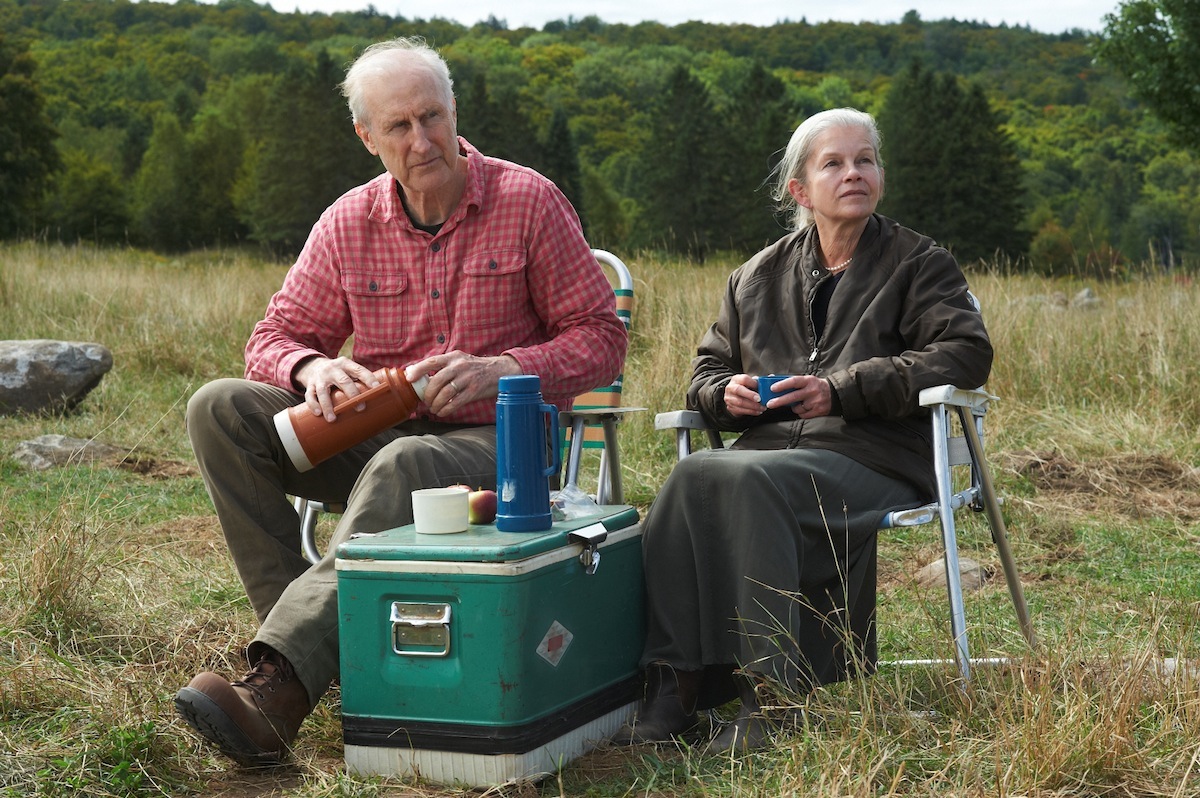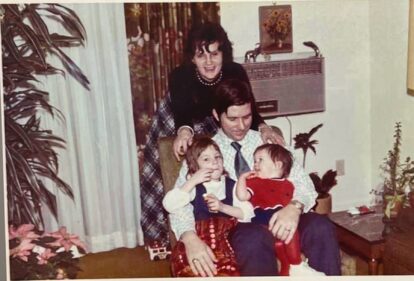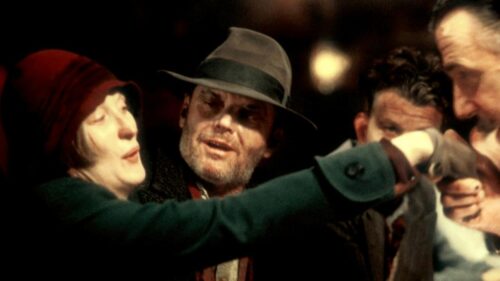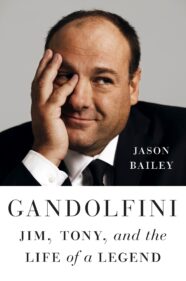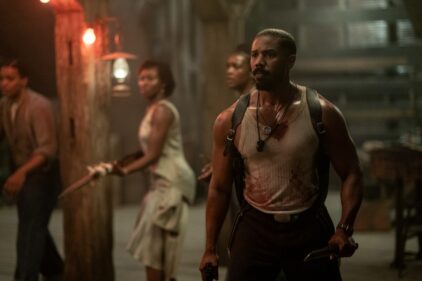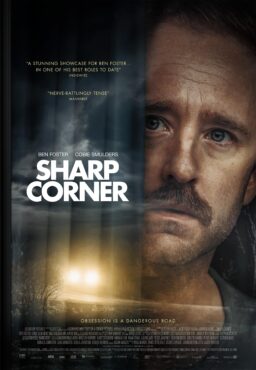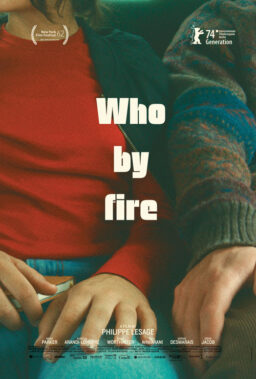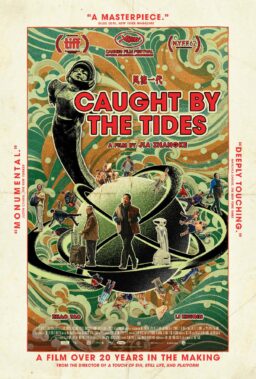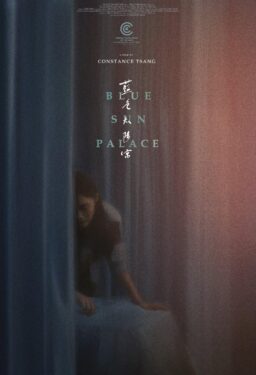After a lengthy career filled with standout supporting turns in projects such as “Babe” (for which he received an Oscar nomination in 1995), “Star Trek: First Contact,” “The Green Mile,” “The Queen” (2006) and “The Artist,” actor James Cromwell has finally been rewarded with the first leading role of his career in the stirring new drama “Still Mine.”
In this drama based on a true story, Cromwell plays Craig Morrison, an elderly but still independent-minded farmer living in rural New Brunswick with his wife of many years, Irene (Genevieve Bujold), who is increasingly slipping into the depths of dementia. Fearing that their rambling farmhouse is too big and unmanageable for someone with her needs, Craig takes it upon himself to build a smaller and more navigable home on his property with his own two hands. Alas, his construction quickly runs afoul of a local government official who slaps Craig with dozens of building code violations and threatens to tear the entire place down unless he brings it up to code. Faced with two seemingly intractable opponents—bureaucracy and the ravages of time—Craig refuses to give up and fights both as best as he can.
Being a low-budget film from Canada without an easily marketable premise, “Still Mine” is only gradually opening up in these parts in a few cities and its chances of expanding any wider are almost totally dependent on generating a positive word of mouth reaction amongst audiences that will hopefully lead to more people deciding to give it a chance instead of blowing their money on the likes of “Grown Ups 2.” To that end, Cromwell has been making a series of personal appearances with the film to help get the word out. After a recent screening in the suburbs of Chicago, Cromwell took part in an audience Q&A (which I had the privilege of moderating) that saw him expounding on subjects ranging from the film and his performance to the Bush family to memories of his first on-screen nude scene. Below is a transcript of some of the highlights of that talk.

You have working regularly as an actor for about 40 years now and yet, while preparing for this Q&A, I was surprised to discover that “Still Mine” is the first film of your career in which you have had a leading role.
This is the first time. I have been a character actor all of my life. I actually wanted to be a director—my father was a director—but I couldn’t get a job as a director, so I took jobs as an actor. I looked like this, only younger, and it didn’t seem to anyone that this was leading man material, so I played doofuses and other things. I just sort of got into the habit of doing that and it worked out.
Some of the more memorable films that you have done over the years are ones in which the execution of the material was arguably more important than the material itself and which presumably required a certain leap of faith on your part that something like a silent movie or a project that had you working opposite a mechanical pig would succeed. In a way, “Still Mine” is like that as well in the sense that to hear just its basic premise, it sounds like it could have been some unholy blend of a bad TV movie and a slightly less depressing version of “Amour.” When you read the script for “Still Mine,” what was it about it that grabbed you and gave you the faith that it could work as well as it does?
You know, you are blessed in this life—or I have been blessed—in that what has come my way has been not the normal features. I almost turned down “Babe” because I only had 17 lines and I didn’t know anything about animatronics and thought that they would just be putting peanut butter into the mouths of the animals. A friend of mine said “Look, it is an opportunity to go to Australia and if the film fails, it isn’t your fault—it is the pig’s fault.” I took that picture and it gave me my career. When you get an Academy Award nomination, it doesn’t necessarily mean that you will work for the rest of your life but at least you are in the club with your feet in the door—if Gene Hackman and Peter O'Toole and Donald Sutherland are working, I get the offer. As a result, things came my way like “The Queen” and “The Green Mile” and “The Artist,” a film that would never have been made in Hollywood—if you had pitched that film to a studio, you wouldn’t have gotten past the secretary.
Here comes this little Canadian film, supposedly with no story at all and which I read very badly. You get so used to reading scripts with that pace—that modern, mindless, driven and unnatural and unbreathed pace of a machine that is going to self-destruct or explode or transform into something else. The human rhythm—the way that we breathe in and out and that you as an audience respond and the silences that help to create a story as much as the story that is on the screen—is something that you tend to miss when reading something for the first time in Hollywood and I did. I gave the director, Michael McGowan, the worst bloody notes—they were horrible—but I wasn’t employed and it seemed like a nice script and so I said I would do it. I went to do another picture and then I started to read it and realized that I had completely misread it and missed the essence of it.
When I got back, I called him and for four hours, I harangued him to put back everything that he had taken out in his rewrite, which he did and that is why the film is the way that it is. He is a beautiful writer and wonderful director and he found just the right tempo and setting and he made this little gem, something that is unique in this industry in the way that “Amour” was. “Amour” is the darker side of this story, which is not to say that it ever turns out particularly well in these cases, but I was incredibly moved by that picture and am proud to be mentioned in the same breath as that film. Our picture is a lighter moment of success of two people prevailing against odds into having the
last moments of their lives being expressions of the relationship that they have had.
In your career, you have played any number of real-life people, including Lyndon Johnson (“R.F.K”), George H.W. Bush (“W.“), Prince Philip (“The Queen”) and noted pornography expert Charles Keating (“The People vs. Larry Flynt“), and “Still Mine” is offers you another role along those lines. As an actor, what do you feel your responsibilities are in regards to playing a real person, especially in the case of a role like this one where the person in question is not a public figure
in the sense that someone like George Bush or Prince Philip is?
I have never really felt any sort of particular responsibility. It is different for different characters. For example, I could not be Craig because I couldn’t build anything like he built—my father and I built a shed once and when we finished, there wasn’t a right angle in the whole thing—and being dyslexic, I don’t measure very well. I don’t tend to mimic or ape the characters that I play. I know that when Susan Sarandon did “Dead Man Walking,” she must have had exchanges and conversations with Sister Prejean because it is very important to know how Prejean responded to things. With this story, I basically know the story—I am a father with grown children, I have built something even though it was wretched and I have a relationship in which I understand tangentially what it is like to lose one’s temper and to feel loss and to resist authority.
When I did “W.,” which was a film by Oliver Stone about Shrub, I would go home and search on the Internet for anything that I could find on the Bush family. I would go in and tell Oliver “Do you know what that family has done?” and would reel things off. He said “Jamie, if you have this much judgement about this character, you are never going to be able to play him” I’ve heard that before and said nah, I will be able to play him but actually, as I developed the character, I went more towards caricature because I had a negative. My opinion of the elder Bush is that because his father was an alcoholic who beat him and the family lied about his father because he was a powerful man in Washington, he learned to lie about the most important things early on and to push his feelings down to the point where his voice kind of catches in his throat. When he breaks, he is completely out of control as when he broke at the Florida legislature—even when Jeb won, he couldn’t talk. Oliver, knowing that was not who the man was or the story that he wanted to tell, kept pushing me to be louder and to get angry. I said “I don’t have to be loud—this is my house and my son is drunk. I just have to tell him that this isn’t going to work.” He pushed me into a relationship with my son that I very well understood and I was then pretty much playing me.
I always believe that even though I am a character actor, what you see is James Cromwell and nothing else—it is my breath, my gestures and my voice. Of course, I try to make the choices that they character would make, so they are not necessarily the choices I would make. I cannot disguise my profile, my height or my size but I adapt and do so well enough so that people can see a difference between Farmer Hoggett and the characters in “L.A. Confidential” and “The Queen.”
By telling a story in which a bold individualist goes up against a system that he feels has run amok thanks to overregulation and government bureaucracy, “Still Mine” is a film that could be read as having a somewhat libertarian perspective. As someone who has been a fairly outspoken and committed activist over the years, did the political aspect of the film have any bearing on your decision to participate in it?
My watchword has always been “Resist Authority” and I have been involved with radical politics since the Sixties, quite an extraordinary period in our history, and while I was never central—I was always the character actor—I was still in the room and had some extraordinary experiences. I understand the politics of this but I don’t like to say that this is libertarian because Craig is not political in the sense of political parties. The regulations imposed by the building commission are put there for a reason—to protect the unsuspecting from the unscrupulous who build houses with green lumber and who do not have the right trusses and joists. Our response as a society is to create regulations that protect people from themselves. Unfortunately, it leave no wiggle room for the exception such as the man who is merely building a house for himself. Also, when you give authority a little power to regulate, they like to take a lot more, as we are seeing in our culture, and there comes a point where a conscientious person has to say “No.”
Somebody wrote a review where they said “Somebody who does not obey the law cannot be a sympathetic character.” What about Gandhi? What about Martin Luther King?’ What about the suffragettes or those for gay rights or the people who have always stood up to oppose unjust laws and regulations? They have always been our heroes and in that respect, I personally think that Craig is a hero. It is on a small scale but he says that this does not stand and cannot stand. It is not human and it is not caring. Those are the politics of this film.

Can you talk about working with Genevieve Bujold—an actress who I have always had a fascination with since a wildly age-inappropriate viewing of “Coma” many years ago and who hasn’t been seen much in recent years on American screens—and creating the on-screen relationship between the two of you that really drives the film?
When I was in college, Genevieve’s first film came out with her then-husband as the director and she was a vision. She went to Hollywood and became a big movie star and I had a big crush on her. We didn’t get a chance to meet until she came on the set and when I looked down on that face, it was the exact same face as it was when I was in college. Yes, there are some lines but the same light that shone through in those early films was there in her face. She is French-Canadian, which means that she is feisty and since their natural language is French, they feel a little ill-at-ease with English. She went through Hollywood as a very successful young actress and that is not an easy thing when you are a woman—an attractive and talented one who is spirited and who has ideas. Hollywood likes to beat on you in one way or another—sometimes it is slight and sometimes not so slight but it is always hurtful. It can be hurtful from the producer right down to the leading man.
If the leading man is unscrupulous, it can be very difficult for a young woman to hold her own in a scene because there are a lot of little tricks that you can do. Genevieve was a little concerned that this big American actor—this big guy—would run roughshod on her and so I spent a lot of time taking care of her and making sure that she felt comfortable and taken care of and was heard. If she didn’t like how something done in one way, we found another way to do it. My relationship with Genevieve mimicked the relationship that Craig had with Irene and I think that is what shows. There is a familiarity but I always had to be on my toes and since you always had to be on your toes with Irene, the character did. It was magic from the first scene and I think she made extraordinary choices in order to communicate the dementia without going as far as it does in something like “Amour,” which would then throw this picture completely off. The balance of this picture meant that she also stepped back.
You have played many decent, good and noble characters throughout your career, Craig in “Still Mine” being one of them. On the other hand, in projects like “L.A. Confidential” and “American Horror Story,” you have play some of the most evil and monstrous people imaginable. Of the two extremes, do you happen to have a preference as an actor?
I always say that it is more fun to play the bad guy because bad guys can do everything—they can smile and be nice to little children or anything else they want because we all know they are bad—whereas the good guy always has to be good and that gets a little boring in my mind. I tried not to do that in this film. I don’t like to categorize because we are all human beings—it is up to the audience to decide if George W. Bush is a bad guy or not. With Prince Philip, I worked very hard on “The Queen” to explicate him for the audience. I actually performed for him and the Queen in London and had tea with both of them afterwards and while I can’t say that I know either of them, I found him to be much more available to me than she was. I very much admire who he is and how much he knows and felt that he was very much justified in his defense of his wife and the whole family, which was being misunderstood for what they were doing.
Actually, Philip and Diana had a relationship right up until her death—they used to exchange letters—because he understood what Diana was going through because he had gone through the same thing. But, when the film came out and people saw it, they would say “God, that guy was such a jerk” and I felt as if I had missed it then. I think that was a little bit of the director, Stephen Frears, wanting me to be a bit like the comic relief so that Helen could sort of float through as the queen because she has to, while I was the one that you could love to hate and they did. Unfortunately, he overdid that a little in my mind and it threw, I believe, my characterization out the window.
Was this your first nude love scene in a movie with a leading lady?
Absolutely, but not my first nude scene. I take my clothes off at the
drop of a hat and nobody cares anymore. Actually, one of my father’s last pictures—my father was a wonderful actor and director—was one that he did with Robert Altman called “3 Women” and he and my mother had a love scene, which was incredible, and it is nice that things are coming around. I actually took my clothes off in a film I did early in my career called “Tank” with James Garner. I had to completely undress in the middle of a town, so they cleared the town all the way and put up blinds so that no one could see it—no one except some wonderful
blue-haired ladies who snuck around the back of a building so that when I
dropped my drawers… So, I know it works.

